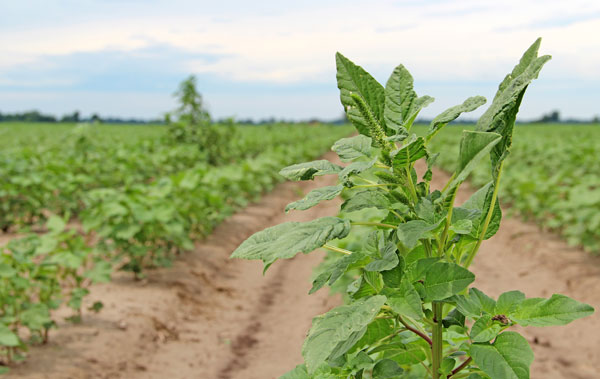October 15, 2013

Alabama growers will be given an update on dealing with two increasingly noxious weeds during a day-long session scheduled Wednesday, Dec. 11, in Calhoun Community College’s Aerospace Building, located north of Decatur.
The meeting will begin at 8 a.m. and end at 3 p.m. Lunch will be provided.
The update will serve as a comprehensive overview of the current spread of glyphosate-resistant pigweed and horseweed, two noxious weeds that threaten farm profitability throughout the Southeast, and will acquaint growers with the strategies and practices that should be adopted to control their spread.
Charles Burmester, an Alabama Extension agronomist who is planning and organizing the event, says the morning session will focus on the general issue of weed resistance.
Larry Steckel, an Extension weed specialist and University of Tennessee associate professor, will discuss the ways growers in neighboring Tennessee have adapted to weed resistance.
Following Stecklel’s remarks, Scott McElroy, an Auburn University associate professor of turfgrass and weed science, will discuss current research into resistant horseweed in Alabama.
John Lowry, product manager at Bayer Cropscience, will follow with a discussion about ways to maintain Liberty herbicide in weed control programs.
Spray nozzle selection will also be a major focus of the morning session.
Spray nozzle selection is not only a concern in terms of cost effectiveness, but it is also considered a critical environmental safeguard, according to Burmester.
Keep materials where they belong
“The strategy must always focus on choosing the nozzle that best ensures we keep herbicide applications only where they’re intended to be and not to drift onto other crops or residential areas.”
The afternoon session will concentrate on new weed control technologies and on some of the changes in thinking that growers must undergo to meet these new challenges, according to Burmester.
“These new technologies encompass new varieties, which means that we’re once again going to have to master these varieties and also to gain a full understanding of the comparative advantages and disadvantages of each,” he says.
Vint Hicks, a technical agronomist with Monsanto, and Jonathan Siebert, Enlist Field Specialist at Dow AgroSciences, will discuss the merits of Xtend and Enlist, two new weed control technologies that will soon be available to growers.
Following their remarks, Steckel will discuss how these new technologies have performed in Tennessee crop variety trials.
The day will be capped off with an open discussion of these new weed control technologies featuring most of the day’s speakers.
In terms of dealing with weed resistance, north Alabama growers have tended to fare better than their counterparts in other states, according to Burmester.
He credits part of this success to the proactive strategies north Alabama growers adopted in the early stages of the weed’s spread, preventing what could have amounted to a wholesale abandonment of many fields.
“I’m still pleasantly surprised because we expected to be in worse shape than we are,” Burmester says. “We’re still dealing with the spread of resistant pigweed, but we have been able to slow down its spread.
“We’ve had some fields with big problems, but in most fields, the pigweed is still scattered.”
While Burmester says they will likely never return to something as convenient as the Roundup Ready cropping system, he believes Alabama growers still have good prospects with the technologies already in hand and the ones that will be available within the next few years.
The critical concern for now is ensuring that growers maintain the technologies that are currently available — one of the reasons for this update.
“Our goal is to underscore to growers the importance of making judicious use of these new technologies and not to over-use them,” Burmester says. “We hope to have learned our lessons from over-reliance on glyphosate and not to repeat that mistake again.”
You May Also Like




